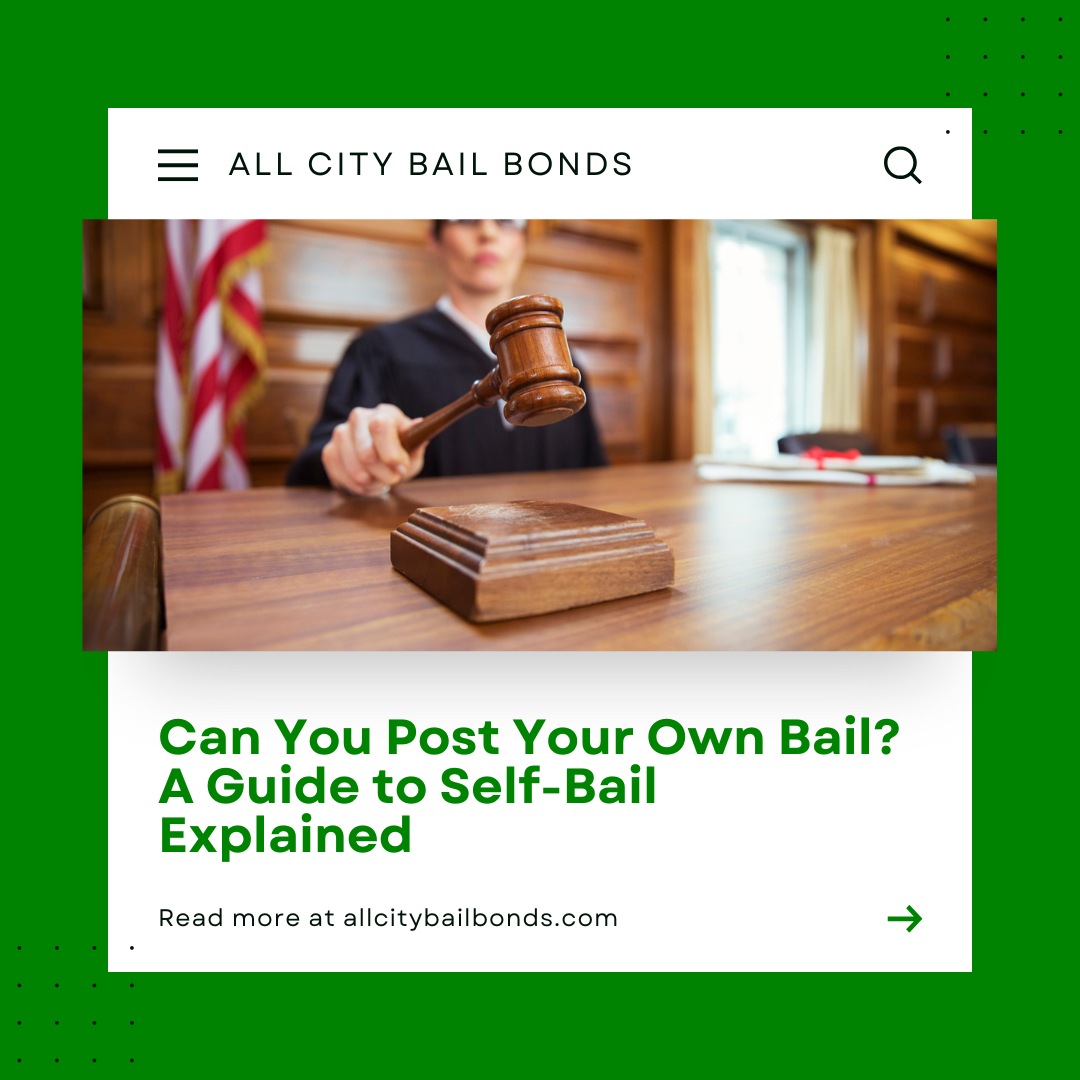
When you’re arrested, one of the first thoughts that may cross your mind is how to get out of jail. While bail is often arranged by family members or friends, there’s another option: posting your own bail. But how does self-bail work, and is it always an option? Let’s break down this process and what you need to know.
What Is Self-Bail?
Self-bail, also known as “cash bail” or “own recognizance bail,” occurs when the arrested individual pays their own bail directly to the court. This option is generally available if:
🔸 The bail amount is relatively low.
🔸 The defendant has immediate access to cash or assets.
🔸 The court permits it based on the charges and circumstances.
Steps to Post Your Own Bail
1. Determine Your Bail Amount
After your arrest, a judge sets your bail amount during your arraignment. This decision is based on factors such as:
🔸 The severity of the charges.
🔸 Your criminal history.
🔸 Your likelihood of appearing in court.
2. Access Your Funds
To post bail yourself, you’ll need immediate access to the required amount. Acceptable payment methods often include cash, credit cards, or certified checks. In some cases, jails may also accept property bonds.
3. Post Bail at the Jail or Court
Once you have the funds, you can pay the bail amount directly to the jail or court. You’ll receive a receipt, which serves as proof of payment.
4. Meet All Court Obligations
Self-bail means you’re financially responsible for ensuring you attend all court hearings. If you comply, the bail money is typically refunded at the end of your case, minus any court fees.
When Self-Bail Isn’t an Option
Not everyone is eligible to post their own bail. Here are some scenarios where self-bail might not be possible:
🔸 High Bail Amounts: If the bail is set too high, you may need a bail bond agent.
🔸 No Access to Funds: Without immediate access to cash, other options like bail bonds or personal recognizance may be necessary.
🔸 Severe Charges: For serious offenses, judges may require additional conditions or deny bail altogether.
Advantages of Self-Bail
🔸 Financial Control: You’re not reliant on others or bail agencies.
🔸 Full Refund Potential: If you meet all court obligations, you’ll get your money back, unlike with a bail bond premium.
Tips for Successfully Self-Bailing
🔸 Keep Documentation: Always keep the receipt of your bail payment.
🔸 Set Reminders: Missing a court date could mean forfeiture of your bail.
🔸 Communicate: Notify the court of any emergencies that may impact your ability to attend hearings.
If you need assistance understanding your bail options, contact All City Bail Bonds at 1-800-622-9991. We’re here to guide you every step of the way.
Disadvantages of Self-Bail
-
Immediate Cash Requirement: Accessing significant funds on short notice can be challenging.
-
Personal Risk: If you fail to appear in court, your money is forfeited.
Self-Bail: A Viable Option for Some
If you have the financial resources and the court permits it, self-bail can be a straightforward way to secure your release. However, it requires careful planning and strict adherence to court obligations to avoid costly mistakes.
